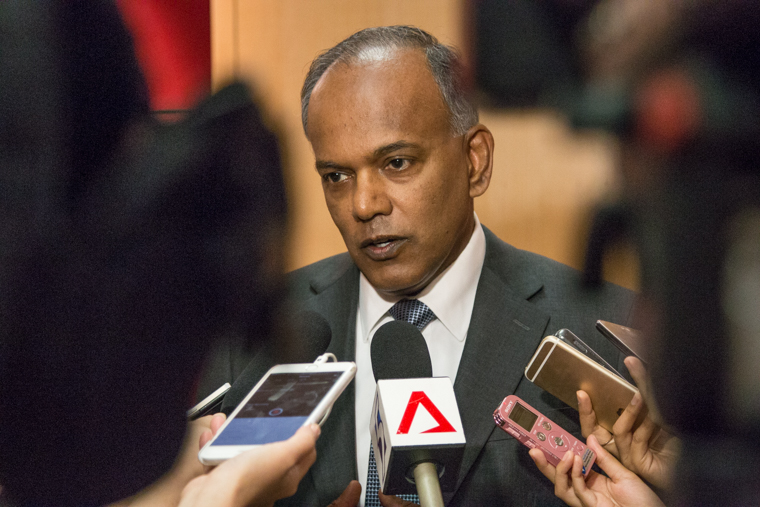Law and Home Affairs Minister K Shanmugam has been pretty busy speaking about proposed changes to the Elected Presidency this past week.
Earlier this week on Thursday, he spoke at a community forum attended by a few hundred South East CDC residents.
On Sunday, at another discussion with 1,300 participants at ITE Central, he was asked point-blank if the planned changes to the eligibility criteria were targeted at preventing candidates like 2011 runner-up Tan Cheng Bock from contesting.
This was indeed a worthy question to follow up on, since Shanmugam responded to a similar-sounding question a few days earlier.
His answer, as reported in The Straits Times, involved him asking the audience a series of questions:
- Do you believe that Singapore needs a president with specific powers to say no to the Government?
- If so, do you think this person needs to be elected and cannot be appointed by the Government?
- If so, do you think there must be some criteria beyond being a Singaporean aged 45 and above, so he can say yes or no to spending a large sum from the reserves?
- And if so, do you think this criteria needs to be reviewed regularly?
A report from Channel NewsAsia quoted him additionally saying:
“The starting point at looking at this is the system... We are doing this for the future, for the benefit of Singapore, our children and grandchildren. You don’t look at individuals and then work backwards. You start with a set of logical questions on the system and then you apply it fairly.”
Changes made to improve EP system, not to target individuals
There are good reasons why he didn't have to bring up Tan Cheng Bock's name again.
In the same dialogue, Shanmugam reportedly stressed that these changes are aimed at improving the system for the "best possible chance" of having the right person for the job, as opposed to making exceptions to ensure a particular individual would qualify or not qualify.
He also reportedly pointed out that it had been 25 years since the elected presidency was introduced.
With the constitutional commission having studied more than 100 written submissions as well as held multiple hearings before putting out its recommendations, the government accepted fully apart from one detail about the candidate having to have served in office for six years (they prefer three).
Other new recommendations introduced by the commission and accepted by the government include requiring private-sector candidates to be or have been the most senior executive in a company with at least S$500 million in shareholders' equity.
The current condition is for eligible candidates to have run a company with S$100 million in paid-up capital.
The constitutional commission was led by Chief Justice Sundaresh Menon.
Besides saying that the commission, alongside many of the participants at the forum, agreed about the need for the criteria to be strengthened, Shanmugam also said it is not feasible for minority races to be rotated with each elected presidency, adding that the best option would be to look for a closed election every five terms.
Related article:
Law minister K Shanmugam singles out Tan Cheng Bock’s disqualification from presidency
If you like what you read, follow us on Facebook and Twitter to get the latest updates.
If you like what you read, follow us on Facebook, Instagram, Twitter and Telegram to get the latest updates.
